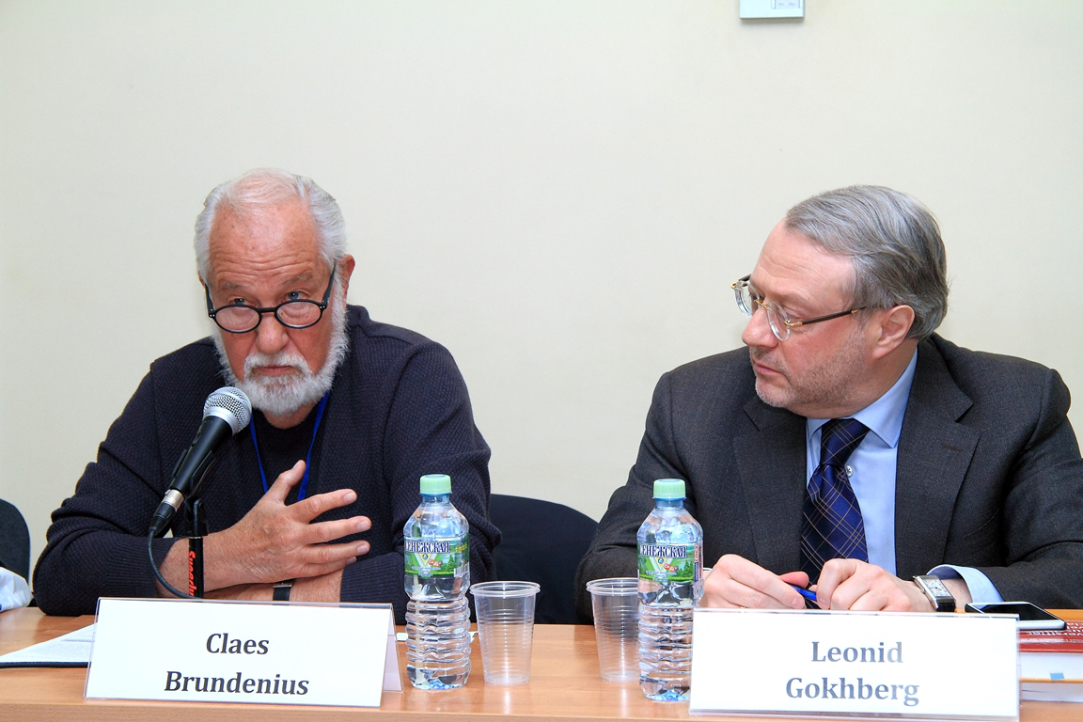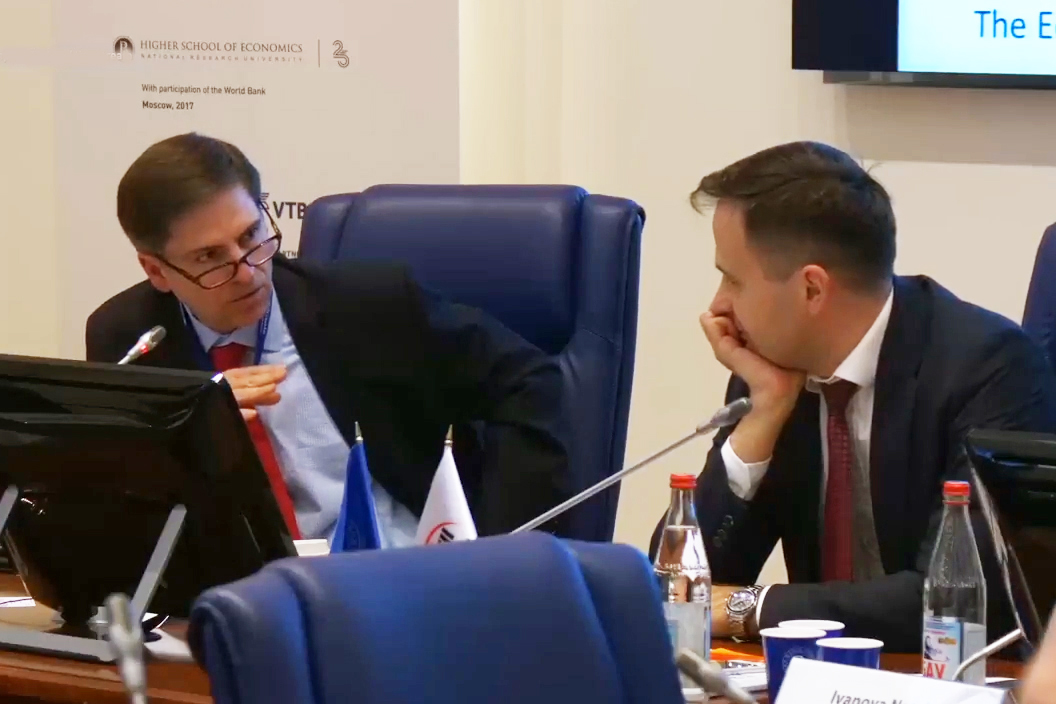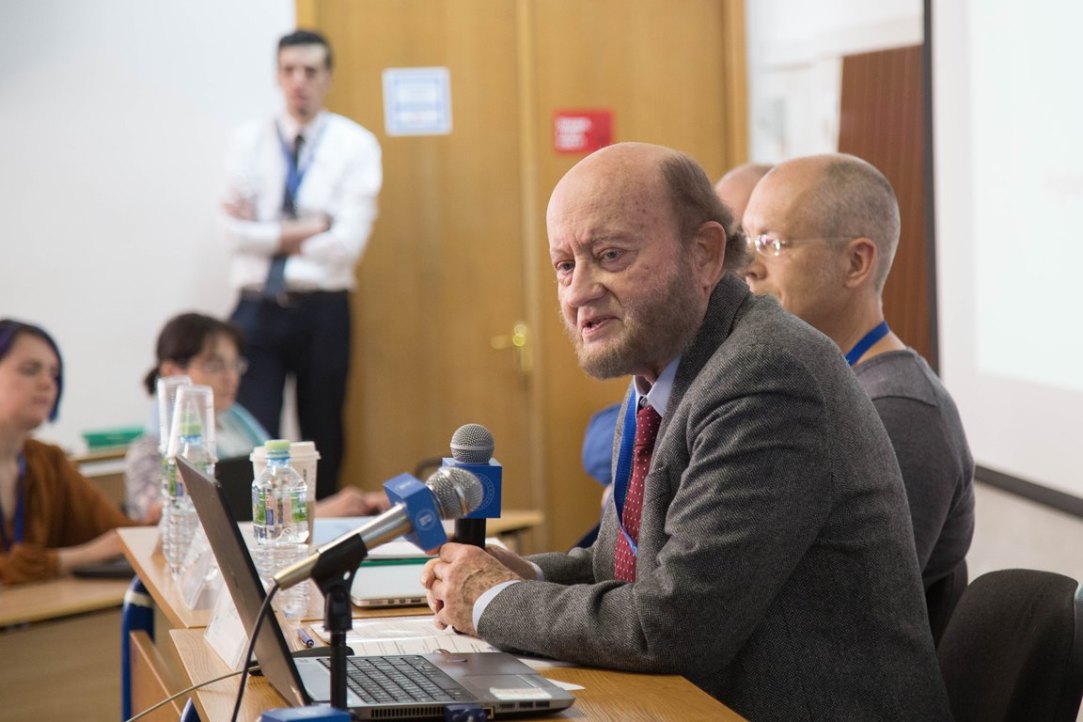Bringing Research to the City
Within its 'University Open to the City' project HSE holds many different lectures and discussions at various city venues, such as Moscow museums and Cultural Centre ZIL. Following the successful experience of HSE Open Talks lectures at HSE Day in September for the last three years, the university launched HSE Talks, a regular English-speaking series of public lectures, held at a coworking cafe. From February to April five speakers from the Faculty of Social Sciences gave their public talks, and The HSE Look talked to one of them, Assistant Professor Ekim Arbatli, to learn more about her impressions from participating in the project.

'Surgery Needs to Preserve Brain Tumour Patients' Speech in Native Language’
As part of the HSE April Conference, Olga Dragoy, Head of HSE Center for Language and Brain (Neurolinguistics Laboratory), presented some of the cutting-edge methods of preventing speech disorders in Russian-speaking patients with brain pathology, including the first Russian-language intraoperative naming test developed by the laboratory. All test materials and instructions are available for free and can be used in clinical practice.
-%D0%B0%D1%81%D0%BF%D0%B8%D1%80%D0%B0%D0%BD%D1%82%D1%8B2%20%D0%B2%20%D0%B0%D1%83%D0%B4%D0%B8%D1%82%D0%BE%D1%80%D0%B8%D0%B8.jpg)
How to Attract Young People to Postgraduate Studies
Traditionally, postgraduate studies have been considered a school of teaching and research and a step towards an academic career. Today, however, many postgraduate students see their future outside academia and plan a corporate career instead. According to Ivan Gruzdev and Evgeniy Terentev, only 56% of postgraduate students plan a career within the academic environment.
-%D0%BC%D1%83%D0%B6%D1%87%D0%B8%D0%BD%D1%8B%20%D1%83%20%D1%81%D1%82%D0%B5%D0%BD%D1%8B%20%D1%81%20%D0%BF%D0%B0%D0%BB%D1%8C%D1%86%D0%B5%D0%BC%20(%D0%BF%D1%80%D0%B5%D0%BD%D0%B0%D1%82%20%D1%82%D0%B5%D1%81%D1%82%D0%BE%D1%81%D1%82).jpg)
What Else Can Fingers Tell Us?
According to HSE researchers, men with a high 2D:4D ratio (i.e. those whose index finger is longer than their ring finger) tend to be better educated. These findings are presented in the paper «2D: 4D and lifetime educational outcomes: Evidence from the Russian RLMS survey» in Personality and Individual Differences.
Examining Moral Change in Modern Societies: A Conversation with Hermann Dülmer
On April 12, Professor Hermann Dülmer of the Julius Maximilian University of Würzburg delivered a special lecture at the Higher School of Economics entitled 'Modernization, Culture, and Moral Change in Europe: From Universalism to Contextualism' within the framework of the 7th LCSR International Workshop on Subjective Well-being and Growing Inequality. An expert in sociology and social psychology, he spoke with the HSE News Service about his research interests and his ongoing cooperation with HSE.

'The Government and Universities Should Complement One Another in Social Policy'
An important area being researched today is the relationship between universities and the government in the formation of socioeconomic policy, and this discussion was raised at the international seminar ‘Universities, Inclusive Development, and Social Innovation’ that took place as part of HSE’s XVIII April International Academic Conference.

Repeating Non-verbs as Well as Verbs Can Boost the Syntactic Priming Effect
According to Glasgow and HSE/Northumbria researchers, repetition of non-verbs as well as verbs can boost the effect of syntactic priming, i.e. the likelihood of people reproducing the structure of the utterance they have just heard.

‘Russia Won’t See the Huge Oil Money it Had in 2010-2014’
Global demand for oil will likely grow at a slower rate, but the chances that this growth will nevertheless continue until 2035 are still high. Moreover, the European Union will remain Russia’s key trading partner, while China will increase its share of the global economy, but it won’t catch up with Russia in terms of GDP per capita by 2040. Experts discussed these and some other options for Russian economic development over the coming decades based on global trends at the expert discussion ‘The Russian Economy in the International Economic System’ at Higher School of Economics (HSE).
Converting Russia’s Educational Potential into Capital
At ‘Crossroads and Prospects for the Development of Russian Education’, a special session held as part of the XVIII April Conference, experts discussed the section related to education from a recent report on the strategy of Russia’s development by the Centre for Strategic Research. Since investments in education have an effect after 15-20 years, participants analyzed development prospects up to 2035.

Aritificial Intelligence Society Breeds Insecurity and Xenophobia
Why did Trump win the election? Who votes for right-wing xenophobic populist parties? How do we account for Brexit? Ronald Inglehart, Academic Supervisor of HSE Laboratory for Comparative Social Research, traces the change in public opinion to rising inequality and the resulting cultural xenophobic backlash and prevailing feeling of insecurity.

